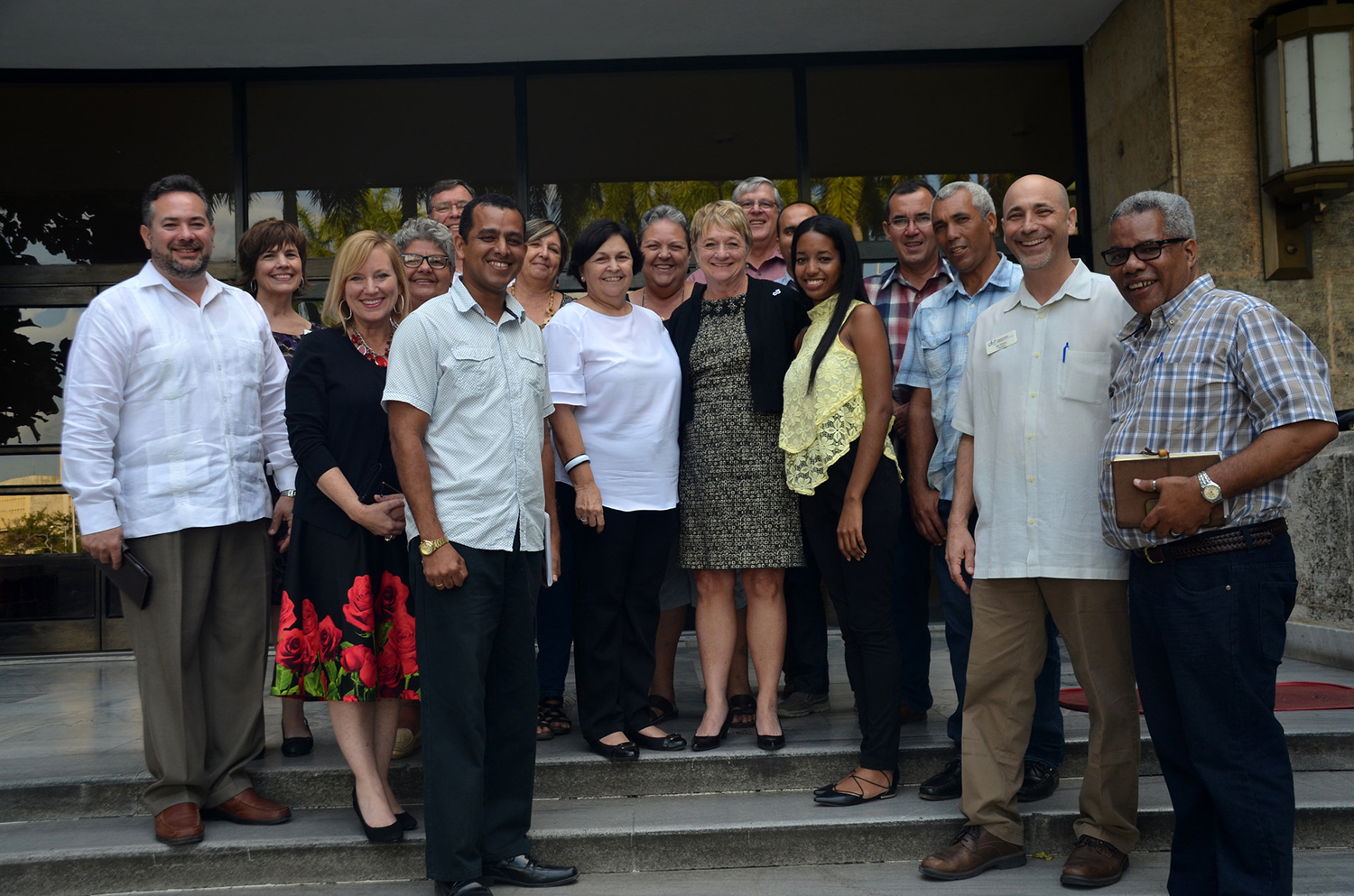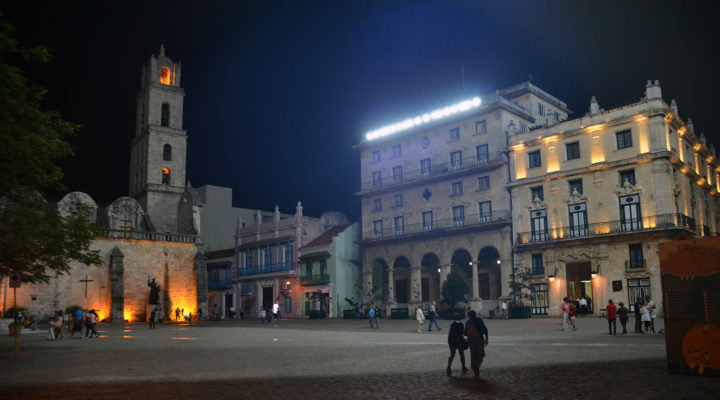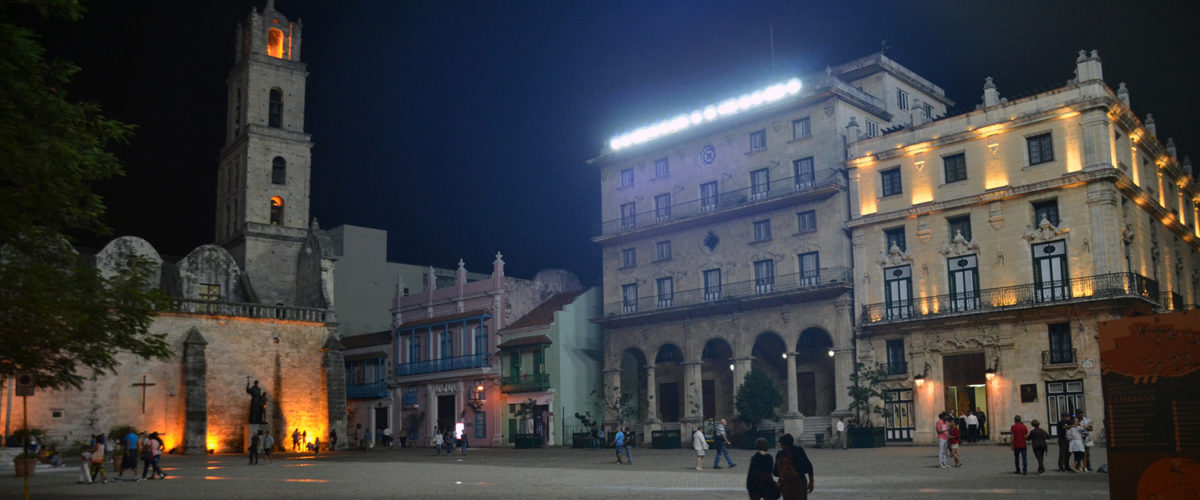Baptists working to foster fraternal relationships between churches in the United States and Cuba criticized President’s Trump plan to roll back some of the steps that President Obama took to open relationships between the two countries.
“Effective immediately, I am canceling the last administration’s completely one-sided deal with Cuba,” Trump said in a speech June 16, the same day he issued a presidential memorandum on “strengthening the policy of the United States toward Cuba.”
Analysts say while it signals a more confrontational relationship with the Castro-led government, Trump’s policy is only a partial shift.
It does not end normalization of diplomatic relations with Cuba, and embassies in Washington and Havana will remain open. Corporations can still do business with the island, except for the parts controlled by the military, and there are no further restrictions on types of goods that Americans can take out of Cuba, including rum and cigars.
It does add restrictions on American travel, in order to “ensure adherence to the statutory ban on tourism to Cuba,” and requires “that educational travel be for legitimate educational purposes.” The policy opposes efforts to end the economic embargo in place since the Cuban Revolution in the late 1950s in hopes it will lead to a transition of power on the island.
Churchnet, a network organized in 2002 as the Baptist General Convention of Missouri, expressed “profound disappointment” with the policy shift.
Churchnet leaders have traveled to Cuba multiple times to partner with Cuban Baptists and just last week hosted a Cuban Baptist president and another Cuban Baptist pastor who met with the network’s board of directors and spoke in local churches.
“The administration’s restrictions will increase costs and obstacles for churches in our network seeking to travel to Cuba and work with Baptists on the island, thereby making it more difficult to live out our religious calling,” Churchnet leaders said in a press release.
Rubén Ortiz, Latino field coordinator for the Cooperative Baptist Fellowship, termed it “sad that the United States is reversing some of the policies that were so helpful in improving relations with these people who live only 90 miles from us.”
“The reasons for supporting the embargo and hostile practices are now obsolete,” said Ortiz, leader of the CBF Latino Network.

A CBF delegation traveled to Cuba in March to explore an official partnership with the Fraternity of Baptist Churches in Cuba. Photo/CBF
A CBF delegation traveled to Cuba in March to explore an official partnership with the Fraternity of Baptist Churches in Cuba, a group started by socially progressive churches expelled from the Baptist Convention of Western Cuba in 1989.
“Our partner churches in Cuba are resilient,” Ortiz said. “We will continue opening spaces of reconciliation and building bridges for the healing of our nations.”
The Alliance of Baptists has been in partnership with the Fraternity of Baptist Churches in Cuba for 26 of the more than 50 years of the U.S. trade embargo on Cuba, said Paula Clayton Dempsey, director of partnership relations.
“We have repeatedly called on Congress to adopt legislation that ends the embargo and removes travel and trade restrictions with the full understanding that the embargo has not achieved its goal and that it hurts ordinary Cubans — not the country’s leaders,” Dempsey said.
“As President Trump’s policies reverse recent progress made in U.S.-Cuba relationships, the Alliance of Baptists’ concerns are with the Cuban people who, for decades, have been trampled on while politicians and leaders fight,” she said. “As people of faith, we dissent the policy announcement, and commit to our ongoing relationship with our partners in Cuba, and to the continual petitioning of Congress to end all oppressive travel and trade restrictions.”
Idael Montero Pacheco, co-pastor at Ebenezer Baptist Church in Marianao, Cuba, said for some time he has “been anxiously awaiting” Trump’s official policy on Cuba. He said the president’s remarks “reverse the steps of progress” made by the previous administration.
“The crosshairs of the policy are aimed at the Cuban government, but the shot, as usually happens, strikes the Cuban people in the foot,” Pacheco said in a statement translated by Stan Dotson of the Alliance of Baptists.
Pacheco said he was born “long after” the revolution that brought Fidel Castro to power in 1959 and feels like he “had nothing to do with all the issues that led to antagonism between our governments.”
As a pastor, however, he feels “that I owe it to myself to contribute to the rapprochement between our countries.” While not a “professional politician,” Pacheco said he would like to meet with President Trump, Sen. Marco Rubio and Rep. Ileana Ros-Lehtinen, the first Cuban-American elected to Congress.
Ros-Lehtinen, a Miami Republican who is retiring from Congress at the end of her current term after more than 35 years in public office, said she “fully” supports President Trump’s announcement on his new Cuba policy.
Rubio, a Florida senator who clashed with Trump while running against him for the Republican nomination for president, became a chief ally working behind the scenes to help develop the White House policy.
While Christians in Cuba lack some of the freedoms that American Christians take for granted, various accounts report a revival of taking place among evangelicals on the island.
About 60 percent of Cuba’s 11 million people are baptized Catholics. There are 40,000 Methodists, 100,000 Baptists and 120,000 members of the Assemblies of God. About 25,000 evangelical and other Protestant houses of worship are located across the country.


